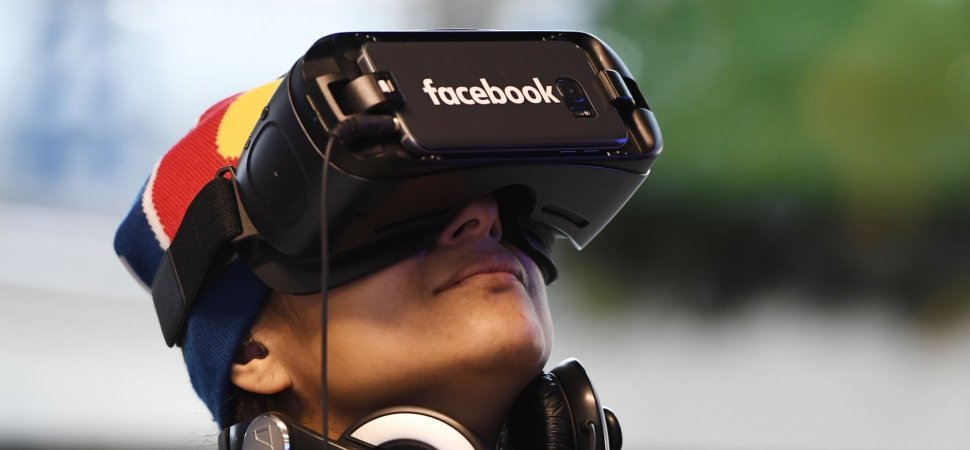What’s the most innovative company in America? You probably wouldn’t guess IBM, but it received more patents from the U.S. patent office than any other company in 2017, and it has topped the list for the past 25 years, according to an annual ranking just released by IFI Claims Patent Services. Patents have come under fire in recent years as companies sought to buy them up and then use them to bludgeon one another in court. Nevertheless, patents remain the single best measure we have of a company’s commitment to researching and developing new ideas, and bringing those ideas to market.
With just over 9,000 patents, IBM narrowly beat out its nearest competitor, Samsung, although since Samsung files patents under three separate entities, you have to add them up to make a proper comparison. These two patent behemoths each got more than twice as many as any other company. The two that came closest were Canon KK, with 3,285 patents, and Intel, with 3,023 patents.
You’d expect patents granted to be up in a continuing strong economy, and they were–significantly so–beating out 2016 by more than 5 percent. Here are a few more unexpected findings from the IFI rankings:
1. Facebook only ranked 50th in patents.
Despite its plans to create groundbreaking innovations such as thought-to-text technology, Facebook has never ranked high on the list of patent assignees. Last year, it was number 50, with 660 patents. That’s up dramatically from 445 patents in 2016, when it only ranked 85th on the list. Still, it seems odd that Facebook received fewer patents than Boeing, Honda, or even Halliburton.
2. Apple didn’t make the top 10.
Apple is often seen as the most innovative company in the U.S. And indeed, it’s led the world in many watershed consumer electronics products, from the personal computer to the portable MP3 player to the touchscreen-controlled smartphone and tablet.
Apple filed the most patents of any company in 2010, the last full year that Steve Jobs was at the helm. In 2017, it filed 2,229 patents for the number 11 slot. It’s worth noting that this was a fair increase from the 2,103 patents it filed in 2016, when it was also ranked at 11. So Apple may be stepping up its innovation game, but so is everyone else.
3. Yahoo got more patents than Uber.
Despite its status as a tech unicorn and industry disrupter, Uber only filed 51 patents last year, for a ranking of 778 out of the top 1,000 patent recipients. That sounds bad, but it’s worth noting that in 2016, it only filed 14 patents, and barely made it into the top 1,000 at all, with a ranking of 977. With 51 patents, Uber is outranked by Yahoo, Adidas, and even vacuum cleaner maker Electrolux. Still, considering all the disruption both Uber and founder Travis Kalanick faced last year, the fact that it nearly tripled its patent filings over 2016 suggests that Uber’s leaders and engineers are good at staying focused in the midst of chaos.
4. Universities are getting lots of patents.
Although no institutions of higher learning made it into the top 50, their presence is noteworthy throughout the rest of the list. The University of California, with 599 patents, ranked number 63, followed by the University of Texas with 245 patents at number 147, and Stanford with 235 patents at number 157. Drexel, Emory, and the University of Rochester all made it into the top 1,000, as did foreign institutions such as Kyoto University.
5. Tesla and SpaceX are not in the top 1,000.
The only Elon Musk property to make the list is the troubled solar power system maker SolarCity, acquired by Tesla in 2016. But that’s not because Musk has lost his innovative edge–far from it. What he has lost is his taste for the patent system. In 2012, he told Business Insider that for SpaceX to patent its innovations would be “farcical.” That’s because in order to patent something you need to explain in detail how it works, and that information could be used as a “recipe book” by Chinese companies who are Tesla’s main competitors and aren’t bound by U.S. patent law.
Two years later, he took down the wall of Tesla patents in the company’s lobby and announced on the Tesla blog that the company would stop patenting its technology. However, this was for the opposite reason–rather than trying to avoid competition, Musk said he wanted other automakers to adopt Tesla technology and bring more electric cars to market to challenge the utter dominance of gas cars. He wrote:
Tesla Motors was created to accelerate the advent of sustainable transport. If we clear a path to the creation of compelling electric vehicles, but then lay intellectual property landmines behind us to inhibit others, we are acting in a manner contrary to that goal. Tesla will not initiate patent lawsuits against anyone who, in good faith, wants to use our technology.
It’s an unusual–and noble–approach to the whole question of patents. But don’t expect too many companies to follow his lead.












